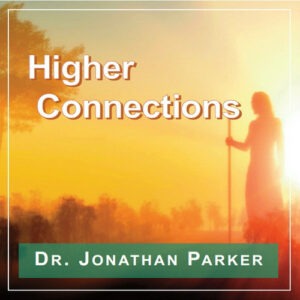Demons: Malevolent Beings and Their Powers

Looking for more amazing products? Check out our online store and explore our collection here! Happy shopping!
Before diving in, please note: This post is for informational purposes only. If you’d like to know more about how we approach topics, feel free to check out our friendly Disclaimer Page.
Hey there, amazing readers! 
We’re committed to delivering quality posts, and your support (even just sticking around despite the ads) means everything to us. So, bear with us, and thanks for helping us keep the good vibes rolling. Now, on to the fun stuff!
TRANSLATE BUTTON AT THE END OF THE ARTICLE
Introduction
Demons, often depicted as malevolent entities across various mythologies and belief systems, represent some of the most sinister forces in spiritual and cultural lore.
These beings are frequently characterized by their destructive intentions, supernatural abilities, and their roles as adversaries to divine or righteous forces.
This article delves into the nature of demons, exploring their origins, powers, roles, and how they influence human experiences and spiritual beliefs.
Origins of Demons
Mythological and Religious Roots
Demons have roots in numerous mythologies and religious traditions, each portraying them with unique attributes and functions:
Ancient Civilizations: In ancient civilizations such as Mesopotamia and Egypt, demons were often seen as malevolent spirits or gods with the power to cause chaos and suffering.
These beings were sometimes associated with specific natural phenomena or illnesses.
Religious Texts: Many religious texts, including the Bible, the Quran, and the Vedas, mention demons as agents of evil or temptation, challenging the moral and spiritual integrity of individuals.
Influence of Folklore
Folklore from various cultures has enriched the depiction of demons, adding layers to their characteristics and roles:
European Folklore: In European folklore, demons are often depicted as tricksters or tormentors, with stories detailing their interactions with humans and their efforts to lead them astray.
Asian Traditions: In Asian traditions, demons may be seen as spirits of the dead or beings from other realms who seek to influence the living world.
Powers and Abilities of Demons
Supernatural Abilities
Demons are typically endowed with a range of supernatural powers that set them apart from ordinary beings:
Shape-Shifting: Many demons have the ability to alter their appearance, allowing them to deceive or manipulate their targets by taking on forms that are more appealing or frightening.
Illusions: They can create illusions to mislead or terrify individuals, blurring the line between reality and fantasy.
Influence and Control
Demons often possess the power to influence or control individuals, impacting their thoughts and actions:
Mind Control: They may exert influence over people’s thoughts, leading them to act against their will or moral compass.
Possession: The concept of demonic possession, where a demon takes control of an individual’s body and mind, is prevalent in many cultures and religions.
Destructive Powers
The destructive nature of demons is a key aspect of their portrayal:
Curses and Hexes: Demons are often associated with casting curses or hexes that bring misfortune, illness, or other forms of harm to their victims.
Physical Harm: They may cause physical harm through direct means or by influencing external factors like natural disasters.
Roles of Demons in Spiritual and Cultural Contexts
Adversaries to Divine Forces
In many religious and spiritual contexts, demons serve as adversaries to divine or benevolent forces:
Agents of Evil: They are often seen as agents of evil who oppose the will of deities or divine beings, creating conflict and challenge in spiritual narratives.
Testers of Faith: Demons may be depicted as testers of faith, tempting individuals to stray from their spiritual path or moral principles.
Symbols of Internal Struggles
Demons can also symbolize internal psychological or emotional struggles:
Personification of Fears: They may represent personal fears, anxieties, or negative traits that individuals must confront and overcome.
Inner Darkness: The concept of demons can reflect inner darkness and the need for personal growth and self-awareness.
Encounters with Demons in Literature and Media
Fictional Depictions
In literature and media, demons are frequently depicted with dramatic and varied characteristics:
Literary Works: Novels and stories often explore the complex nature of demons, depicting them as both terrifying and tragic figures with elaborate backstories and motives.
Film and Television: Films and TV shows frequently use demons as central antagonists, showcasing their powers and the conflicts they create for protagonists.
Cultural Interpretations
Different cultures interpret demons in ways that reflect their unique values and beliefs:
Connect with Angels, Guides, and Master Teachers – begin here.
Cultural Myths: Cultural myths and legends may provide insights into how demons are perceived and the roles they play in shaping societal norms and values.
Art and Symbolism: Artistic representations of demons often reflect cultural attitudes toward evil and the struggle between good and evil.
Methods of Protection and Defense
Spiritual and Ritualistic Practices
Various spiritual and ritualistic practices are used to protect against or counteract demonic influences:
Exorcism: In many traditions, exorcism rituals are performed to expel demons from individuals or locations, restoring balance and purity.
Protective Charms: Protective charms, amulets, and talismans are used to ward off demonic entities and shield individuals from their influence.
Personal and Psychological Strategies
Dealing with the concept of demons may also involve personal and psychological strategies:
Therapeutic Approaches: Therapy and counseling can help individuals address fears or anxieties that may be symbolically represented as demons.
Personal Empowerment: Building personal resilience and self-awareness can help individuals confront and overcome internal struggles that are metaphorically linked to demons.
Understanding Demons in a Modern Context
Psychological Interpretations
In contemporary psychology, demons are often viewed as symbols of mental and emotional challenges:
Symbolic Representations: Demons can symbolize deep-seated psychological issues such as trauma, depression, or anxiety.
Understanding these symbolic representations can aid in therapeutic practices.
Cognitive Behavioral Approaches: Cognitive behavioral techniques can be used to address negative thought patterns and behaviors that may be metaphorically associated with demonic influences.
Ethical and Philosophical Considerations
The study of demons raises ethical and philosophical questions about the nature of evil and human morality:
Concepts of Evil: Exploring the nature of demons can lead to deeper questions about the concept of evil and its role in human experience and moral development.
Moral Lessons: The depiction of demons often serves as a way to explore moral lessons and the consequences of succumbing to negative influences.
Conclusion
Demons, with their rich and varied portrayals across mythologies, religions, and cultures, represent some of the most compelling figures in spiritual and psychological narratives.
Their powers, roles, and influences offer insights into the nature of evil, the challenges of personal growth, and the struggle between light and darkness.
By understanding the multifaceted aspects of demons, individuals can gain a deeper appreciation for their significance in both historical and modern contexts, and find ways to address the symbolic and real challenges they represent.

The Enlightenment Journey is a remarkable collection of writings authored by a distinguished group of experts in the fields of spirituality, new age, and esoteric knowledge.
This anthology features a diverse assembly of well-experienced authors who bring their profound insights and credible perspectives to the forefront.
Each contributor possesses a wealth of knowledge and wisdom, making them authorities in their respective domains.
Together, they offer readers a transformative journey into the realms of spiritual growth, self-discovery, and esoteric enlightenment.
The Enlightenment Journey is a testament to the collective expertise of these luminaries, providing readers with a rich tapestry of ideas and information to illuminate their spiritual path.
Our Diverse Expertise
While our primary focus is on spirituality and esotericism, we are equally passionate about exploring a wide range of other topics and niches 

To ensure we provide the most accurate and valuable insights, we collaborate with trusted experts in their respective domains 
Our blog originally focused on spirituality and metaphysics, but we’ve since expanded to cover a wide range of niches. Don’t worry—we continue to publish a lot of articles on spirituality! Frequently visit our blog to explore our diverse content and stay tuned for more insightful reads.
Hey there, amazing reader! 
Check out our store here and take a peek at some of our featured products below! Thanks for being awesome!













